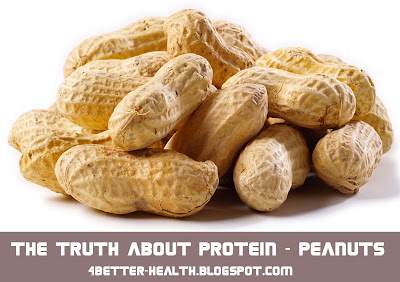They’re technically not nuts, but legumes… Whatever they are, peanuts have been accused of being allergenic and toxic. Do they really deserve the bad rap?
Rise In Allergies
Like most other allergies, peanut allergies are on the rise. One study showed that their incidence as doubled from 1997 to 2002. This is just another reason for you to assess if your body can tolerate them.
Remember: if you have a certain degree of intolerance towards a food – no matter how nutritious it usually is – your body will react negatively and create inflammation that makes it harder for you to burn body fat.
Aflatoxins: Myths Busted
The scare around peanuts comes from the fact that they contain certain levels of aflatoxins – a carcinogenic toxin developed by molds – during storage. Does this mean you should avoid peanuts? Let’s put things in
perspective:
Another interesting fact: Consuming chlorophyll-rich foods like green veggies helps disable aflatoxins.
Pesticides In Peanuts?
Peanuts used to be one of the most sprayed crops, but the high costs of pesticides and other chemicals
forced producers to reduce their use by 250,000 pounds between 1994 and 2000. Even if health “expert bloggers” vaguely claim peanuts are “filled with pesticides”, the latest studies show otherwise:
- Peanuts are potentially contaminated with 8 different pesticides, compared to 42 for apples and 48 for spinach
- 27% of peanuts crops are sprayed with piperonyl butoxide, a pesticide also found in 30% of rice, but in 10X greater amounts
- You’d have to consume 80 kg of peanut butter to reach the EPA’s toxicity threshold
- That being said, any amount of pesticide means bad news for your body. Choosing organic will ensure your peanuts are free of chemicals
Summary
- Avoid peanut butters that contain added hydrogenated oils and sugar.
- If you can tolerate them, peanuts are a good source of protein, magnesium, folate, vitamin E, copper, arginine and fiber – and a good fat-burning snack when consumed in moderation.
- Like nuts, peanuts contain very fragile oils that are damaged in the high temperature roasting process. For that reason, you should stick with raw peanuts.
- Aflatoxins can be found in a lot of other food products, and can actually be lower in popular brand peanut butters.
- To avoid aflatoxins completely, choose Valencia peanuts or wild jungle peanuts.


